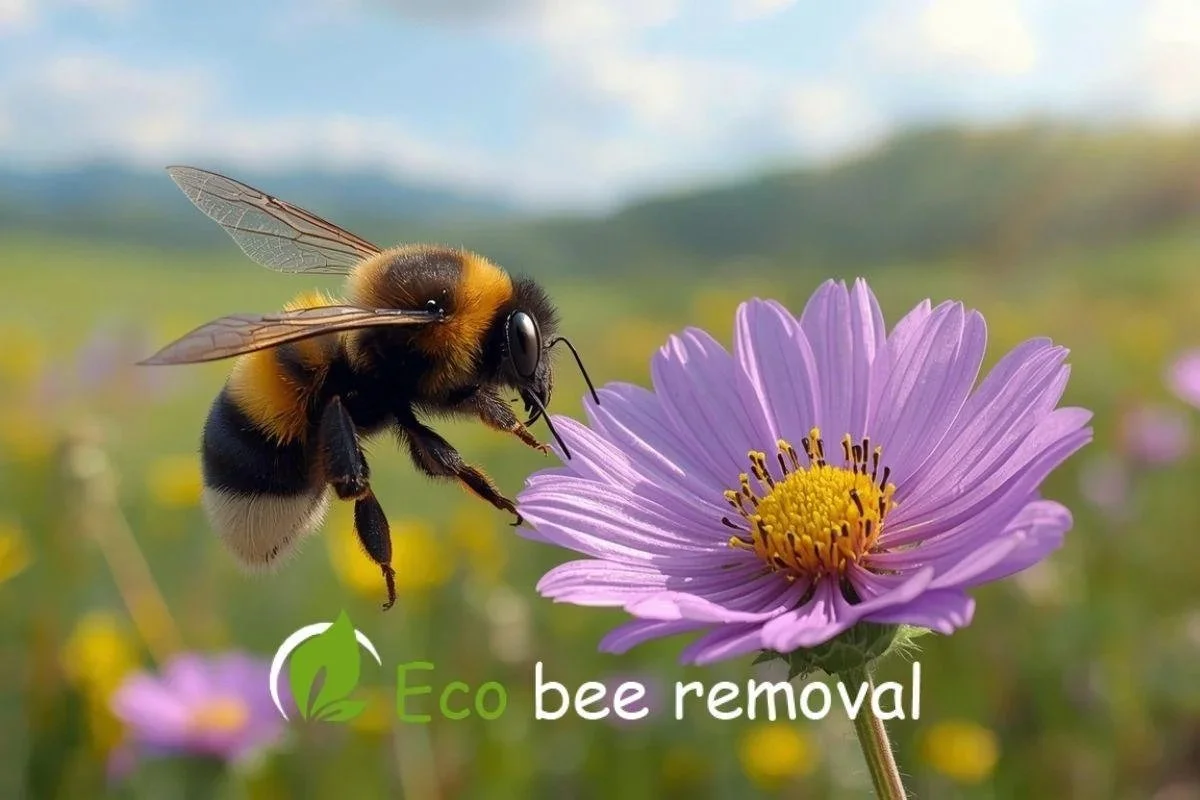The Role of Bees in Our Ecosystem and Pollination.
When we think about bees, the first image that often comes to mind is honey. However, bees are far more important than just being nature’s honey makers. They are one of the most critical pollinators on Earth, supporting biodiversity, agriculture, and the balance of ecosystems. Without bees, our environment, food supply, and even human survival would face serious challenges.
In this blog post, we’ll explore the vital role bees play in pollination, how they support ecosystems, and why protecting them is so important for the future.
Why Bees Are Essential Pollinators
Pollination is the process of transferring pollen grains from one flower to another, enabling plants to reproduce. While the wind and other animals also contribute to pollination, bees are by far the most efficient pollinators.
Bees visit flowers to collect nectar and pollen, which they use for food and hive development. As they move from one bloom to another, pollen sticks to their bodies and gets transferred to the next flower. This simple action helps plants form fruits, seeds, and vegetables.
In fact, it is estimated that nearly 75% of flowering plants and about one-third of the food we eat depend on pollination by bees and other insects. That means without bees, our diet would look very different—limited in variety and nutrition.
A bumblebee pollinating a wildflower, vital for biodiversity and healthy ecosystems.
The Connection Between Bees and Food Security.
Bees are not only vital for wild plants but also for agriculture. Many of our staple and specialty crops rely on their pollination. Foods such as apples, blueberries, cucumbers, pumpkins, almonds, and coffee owe their existence to bees.
Imagine walking into a grocery store where half of the fruits and vegetables are missing. That’s what would happen if bees disappeared. Farmers would struggle to maintain yields, and the cost of food would rise significantly due to limited availability and the need for artificial pollination methods.
By helping plants reproduce, bees support not just farmers but the entire food chain, from insects and birds to humans who rely on plant-based nutrition.
Bees and Biodiversity
Beyond agriculture, bees are key players in maintaining biodiversity. When bees pollinate plants in forests, meadows, and gardens, they help native vegetation thrive. These plants, in turn, provide shelter and food for countless other species, from small insects to large mammals.
Without pollinators, ecosystems would become unbalanced. Certain plants would die out, leading to a ripple effect where animals that depend on those plants would also struggle to survive. In other words, bees help maintain the delicate web of life that sustains Earth’s ecosystems.
Types of Bees and Their Roles.
Not all bees are the same, and different species contribute to pollination in unique ways.
Bees are buzzing in a flower-filled garden.
Honeybees: Known for producing honey and living in large colonies, honeybees are major pollinators of crops and wildflowers.
Bumblebees: These bees are excellent pollinators for crops like tomatoes and peppers, thanks to a technique called “buzz pollination.”
Solitary bees: Unlike honeybees, solitary bees such as mason bees don’t live in hives, but they are incredibly efficient pollinators, often visiting more flowers in a day than honeybees.
Together, these bee species create a powerful pollination network that benefits ecosystems globally.
The Threats Bees Face.
Sadly, bee populations around the world are declining due to several factors:
Pesticides – Chemicals used in agriculture harm bees by contaminating the nectar and pollen they rely on.
Habitat Loss – Urban development and intensive farming reduce wildflower areas where bees can forage.
Climate Change – Shifts in temperature and weather patterns disrupt blooming cycles, making it harder for bees to find food.
Diseases and Parasites – Invasive mites and pathogens weaken bee colonies and cause mass die-offs.
The loss of bees would mean reduced pollination, smaller crop yields, and the collapse of natural ecosystems. That’s why protecting them is not only about saving insects—it’s about saving ourselves.
How Protecting Bees Helps the Environment.
Safeguarding bee populations benefits humans and nature in multiple ways:
Improved Crop Yields: Healthy bee populations mean more abundant harvests and better-quality produce.
Sustainable Ecosystems: Bees maintain plant diversity, which stabilizes ecosystems and reduces the risks of collapse.
Support for Wildlife: Plants that rely on pollination provide food and shelter for countless species, keeping ecosystems alive and thriving.
By protecting bees, we ensure a sustainable environment for future generations.
What You Can Do to Help Bees.
While the challenges bees face are serious, there are many ways individuals and communities can make a difference:
Plant Bee-Friendly Flowers – Choose native plants that provide nectar and pollen throughout the year.
Avoid Harmful Pesticides – Use organic or bee-safe alternatives when gardening.
Support Local Beekeepers – Buying local honey helps maintain beekeeping practices that support bee survival.
Provide Habitat – Leave patches of wildflowers, create bee hotels, or allow part of your yard to grow naturally.
Spread Awareness – Educate others about the importance of bees and encourage eco-friendly practices.
These simple steps, when adopted widely, can make a big difference in protecting bee populations.
The Bigger Picture: Bees and Climate Change.
A honeybee pollinating a sunflower, supporting food crops and ecosystems
Bees are also critical in helping ecosystems adapt to climate change. By pollinating plants that store carbon and improve soil health, bees indirectly contribute to reducing greenhouse gases. Healthy ecosystems are more resilient to changing climates, and bees are at the center of this process.
Protecting bees is not just about agriculture—it’s about protecting the planet’s ability to heal itself.
Final Thoughts
Bees may be small, but their role in the ecosystem is massive. They are nature’s pollinators, food providers, and biodiversity supporters. Every time a bee visits a flower, it plays a part in keeping the world alive and flourishing.
The decline of bees is a global warning sign we cannot ignore. By supporting bee conservation, promoting eco-friendly practices, and spreading awareness, we can ensure these vital pollinators continue to thrive.
The next time you see a bee buzzing around, remember—it’s not just collecting nectar. It’s working tirelessly to support our ecosystems, our food, and our future.



